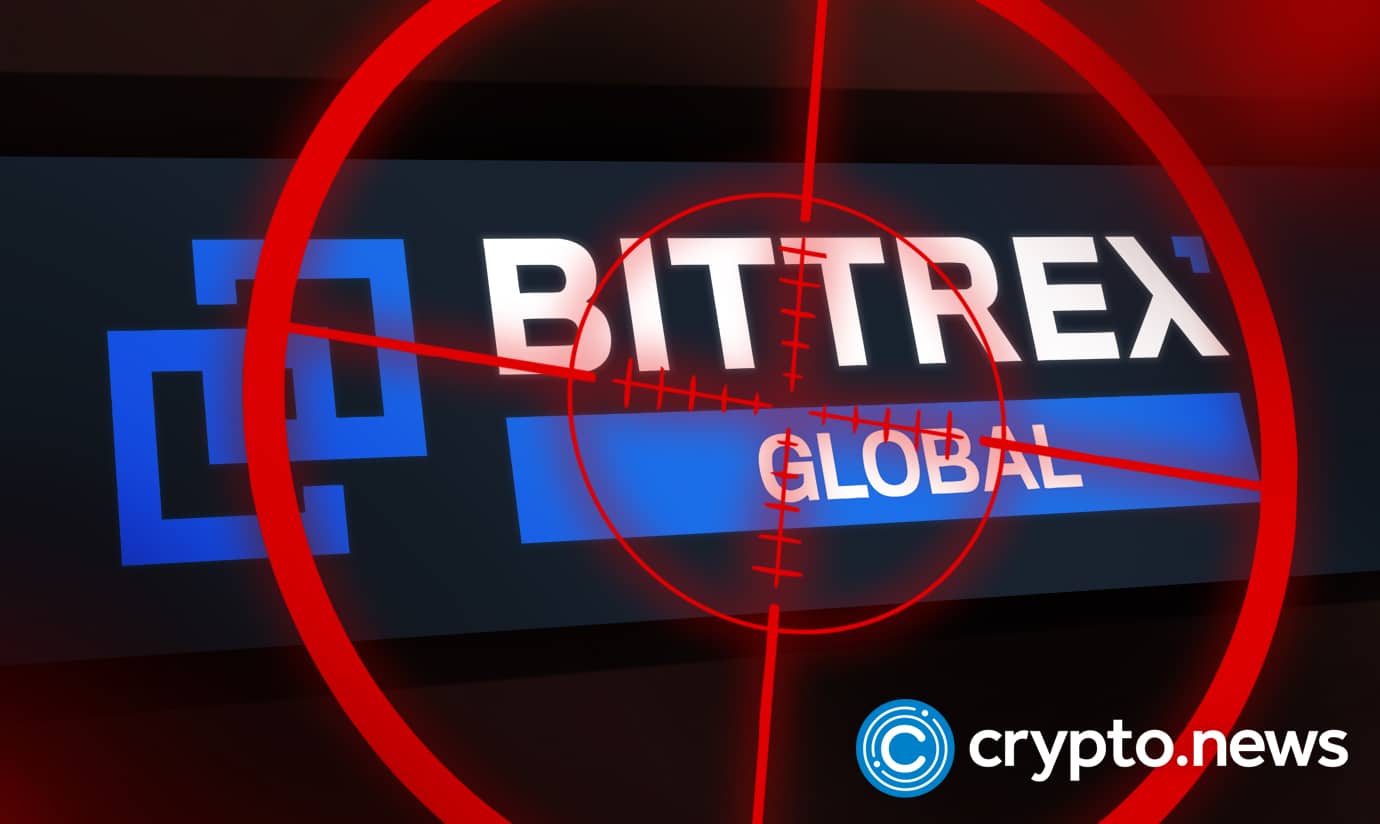Bittrex in $29M Worth of Trouble With the U.S. Treasury Department

The U.S. Treasury Department has imposed a penalty against the American cryptocurrency exchange, Bittrex. The corporation will be fined $24 million by the Office of Foreign Assets Control (OFAC) and $29 million by the Financial Crimes Enforcement Network (FinCEN).
Is It Ignorance or Just Defiance?
Bittrex will have to pay a total of $29 million because FinCEN indicated it would apply the amount paid to OFAC towards the overall fine they levied. The sanctions imposed against a cryptocurrency exchange are the highest the Treasury Department has ever charged.
As cryptocurrencies and other virtual assets have increased over the past few years and become more entwined with the regulated financial system, authorities are now responsible for assessing risks in a mostly uncontrolled environment.
OFAC and FinCEN audit discovered obvious breaches of several sanction programs, as well as deliberate breaches of the Bank Secrecy Act’s (BSA) anti-money laundering (AML) and suspicious activity report (SAR) disclosure rules. The need to have suitable risk-based sanctions regulatory guidelines and uphold BSA requirements is emphasised to the cryptocurrency industry by these criminal proceedings.
If nothing is done, cooperation may break OFAC and FinCEN regulations, and platforms and other participants in the cryptocurrency business may be susceptible to criminal exploitation.
Andrea Gacki, director of OFAC, claims that cryptocurrency companies risk serving as a platform for illegal actors who threaten American national security if they don’t implement effective sanctions compliance controls, such as vetting customers established in sanctioned countries.
Bittrex’s Fallout With the Two Powerhouses and Their Consensus
To resolve its possible legal penalties for 116,421 apparent violations of numerous sanctions programs, Bittrex has agreed to pay $24,280,829.20 to OFAC. Because of flaws in its systems for complying with sanctions, Bittrex allowed users of its platform to conduct transactions with virtual currencies valued at about $263,451,600.13 between March 2014 and December 2017. These users were allegedly based in the Crimea region of Ukraine, Cuba, Iran, Sudan, and Syria.
It was typically forbidden for Americans to conduct business with these countries under the appropriate sanctions. Bittrex has grounds to believe that these customers were based in countries under sanctions depending on the IP address information and physical address information that Bittrex obtained about each client during onboarding.
However, Bittrex was not checking this customer data for phrases connected to prohibited areas at the time of the transactions. The disclosure of this information was not freely made.
FinCEN’s Settlement
For its flagrant violations of the BSA’s AML program and SAR standards, Bittrex has accepted a settlement of $29,280,829.20. As part of its settlement to resolve its prospective responsibility with OFAC, FinCEN will credit the $24,280,829.20. According to FinCEN’s review, Bittrex had a subpar AML procedure from February 2014 to December 2018. The platform’s weak processing of payments exposed a considerable amount of illegal finance.
Furthermore, with increased anonymity, Bittrex’s AML procedure did not adequately address the dangers connected to its goods and services, particularly digital currencies. Between February 2014 and May 2017, a span of more than three years, Bittrex failed to submit any SARs.
In addition, Bittrex neglected to submit SARs on a sizable volume of transactions involving prohibited locations, including those that lacked any other reason to be suspicious.
















